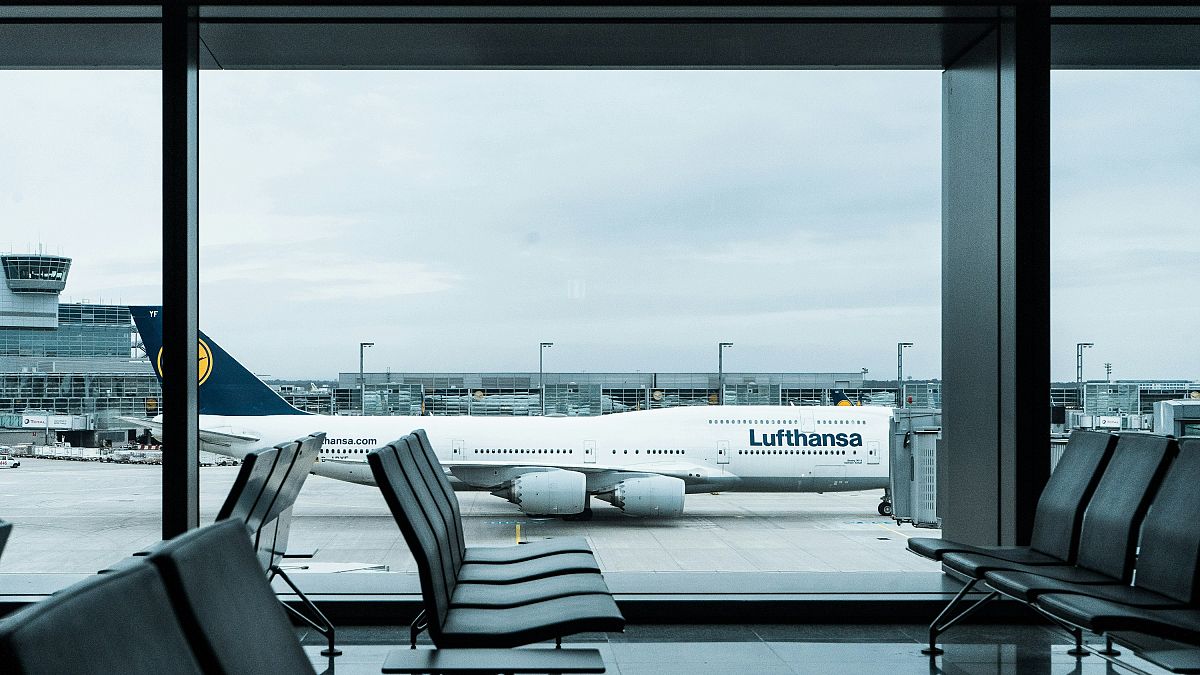Delays and cancellations have been announced for 17 and 18 January.
Air transport in Germany has been hit by freezing temperatures and extreme weather with hundreds of flights grounded.
Airports are warning of severe disruption due to the extreme cold which is creating dangerous conditions for aircraft on the ground and in the air.
Hundreds of flights were delayed or cancelled on Wednesday and the disruption is set to continue throughout Thursday (18 January).
Travellers are advised to check the status of their flights before heading to airports.
Flights cancelled at German airports due to ‘extreme’ conditions
Travellers intending to fly from airports in Germany on 18 January and the coming days are being warned to expect disruption.
The German Weather Service has warned of heavy snowfall across the country, with some places expecting as 30 centimetres, over the next 24 hours.
The freezing temperatures are causing hazardous conditions for pilots.
Frankfurt airport is currently impacted the most. The travel hub is warning of significant delays and cancellations of flights.
On Wednesday, 570 of the 1,047 scheduled arrivals and departures were cancelled. More than 300 of the 1,000 flights scheduled for Thursday have also been grounded.
Although planes can be de-iced, they risk icing up again while taxiing along the runway, the airport said.
“Due to the forecasted weather conditions, flight disruptions and cancellations will occur on 17 January at Frankfurt airport. Weather-related flight disruptions are also expected for 18 January,” a spokesperson said.
Travellers are asked not to come to the airport if their flights are cancelled.
Munich airport is also affected, with 254 flights grounded.
In western Germany, Saarbruecken airport closed for the day on Wednesday, and Dusseldorf and Cologne/Bonn airports were also affected by delays and cancellations.
The German Weather Service has increased weather warnings for some areas to level four, or ‘extreme severe’.
At Frankfurt airport, warnings have been issued of black ice. When this builds up on runways, it reduces the traction of aircraft and risks accidents.
Freezing rain is also a problem for pilots when in the air. If ice builds up on aircraft wings it can destabilise the plane.
Lufthansa flights are likely to see the most disruption. The airline has its bases at Frankfurt and Munich airports.
It is asking passengers to check the status of their flights on the company or airport websites in advance and not to go to the airport in the case of cancellations.
In December, Munich airport was forced to close for several days due to snowy conditions. One aircraft not in use at the time tipped backwards after snow built up on the fuselage.
German rail travel disrupted by icy conditions
German state rail operator Deutsche Bahn (DB) has also warned of delays and cancellations due to the freezing conditions.
The company scrapped several long-distance connections and limited the maximum speed for its high-speed ICE trains to 200 kilometres per hour on Wednesday as a precautionary measure.
DB warns Thursday will likely see more services impacted by the extreme weather.

Emily Foster is a globe-trotting journalist based in the UK. Her articles offer readers a global perspective on international events, exploring complex geopolitical issues and providing a nuanced view of the world’s most pressing challenges.








